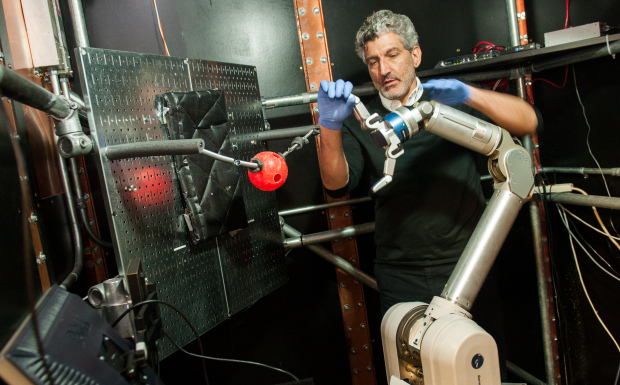Imagine a future where humans can control robotic limbs using the power of their minds. Recent research from the University of Chicago provides a tantalizing glimpse into this reality, showcasing a groundbreaking experiment where rhesus monkeys, all amputees, learn to operate robotic arms solely through thought. This transformative research not only demonstrates the exciting capabilities of brain-machine interfaces (BMIs), but also raises important questions about brain adaptability and recovery.
The Experiment: How It Works
In this innovative study, three monkeys with limb amputations, sustained due to injuries over a decade ago, were trained to grasp a ball using a robotic arm. The learning process involved trial and error, wherein the monkeys received a refreshing reward of juice for successfully manipulating the robotic limb. This simple incentive-based training laid the groundwork for exploring a fascinating new frontier in biomedical engineering.
Understanding Brain Changes Through Exposure
What sets this research apart is not just the exciting demonstration of monkeys controlling robotic arms, but the team’s observations regarding changes in the monkeys’ brains over a 40-day period of exposure to the BMI system. According to senior author Nicholas Hatsopoulos, the most profound implication of their findings centers on the ability of the brain to reorganize itself when faced with new motor skills. He’s compared this reorganization to the way our brains adapt when learning to play musical instruments or partake in sports.
- Trial and Error: The monkeys engaged in an iterative learning process, akin to how humans hone their motor skills.
- Brain Adaptability: Repeated exposure led to notable changes in the monkeys’ brain regions associated with motor control.
- A Sensory Feedback Future: There is potential for sensory signals to be relayed back to the brain via this technology, hinting at a time when prosthetics may provide a sense of touch.
Beyond Amputees: Implications for Paralyzed Individuals
The insights gained from this research don’t just apply to amputees. The technology’s potential to assist individuals with conditions like paralysis presents an exciting prospect. Currently, the focus is on developing solutions for those who have lost limbs, largely driven by DARPA funding aimed at aiding soldiers injured in combat. However, the implications extend far beyond the military context, as advancements in BMIs could eventually revolutionize rehabilitation techniques for a variety of neurological disorders.
A Vision for the Future
The intersection of neuroscience and robotics has the power to redefine how we perceive mobility and dexterity. With ongoing research aimed at enhancing the functionality of BMIs, the dream of reconnecting the brain with technology can lead to a new era of rehabilitation and accessibility. As we probe deeper into how these systems can deliver sensory feedback and refine motor control, the possibilities seem limitless.
Conclusion: A Paradigm Shift in Brain-Machine Interaction
The remarkable findings from the University of Chicago set the stage for a paradigm shift in the way we approach rehabilitation and prosthetics. By leveraging the incredible adaptability of the brain, we can pave the way for more effective treatments that resonate with the needs of those impacted by limb loss. As we explore the intricacies of brain-machine interfaces and their role in enhancing quality of life, one thing is clear: the future holds great promise.
At fxis.ai, we believe that such advancements are crucial for the future of AI, as they enable more comprehensive and effective solutions. Our team is continually exploring new methodologies to push the envelope in artificial intelligence, ensuring that our clients benefit from the latest technological innovations. For more insights, updates, or to collaborate on AI development projects, stay connected with fxis.ai.

